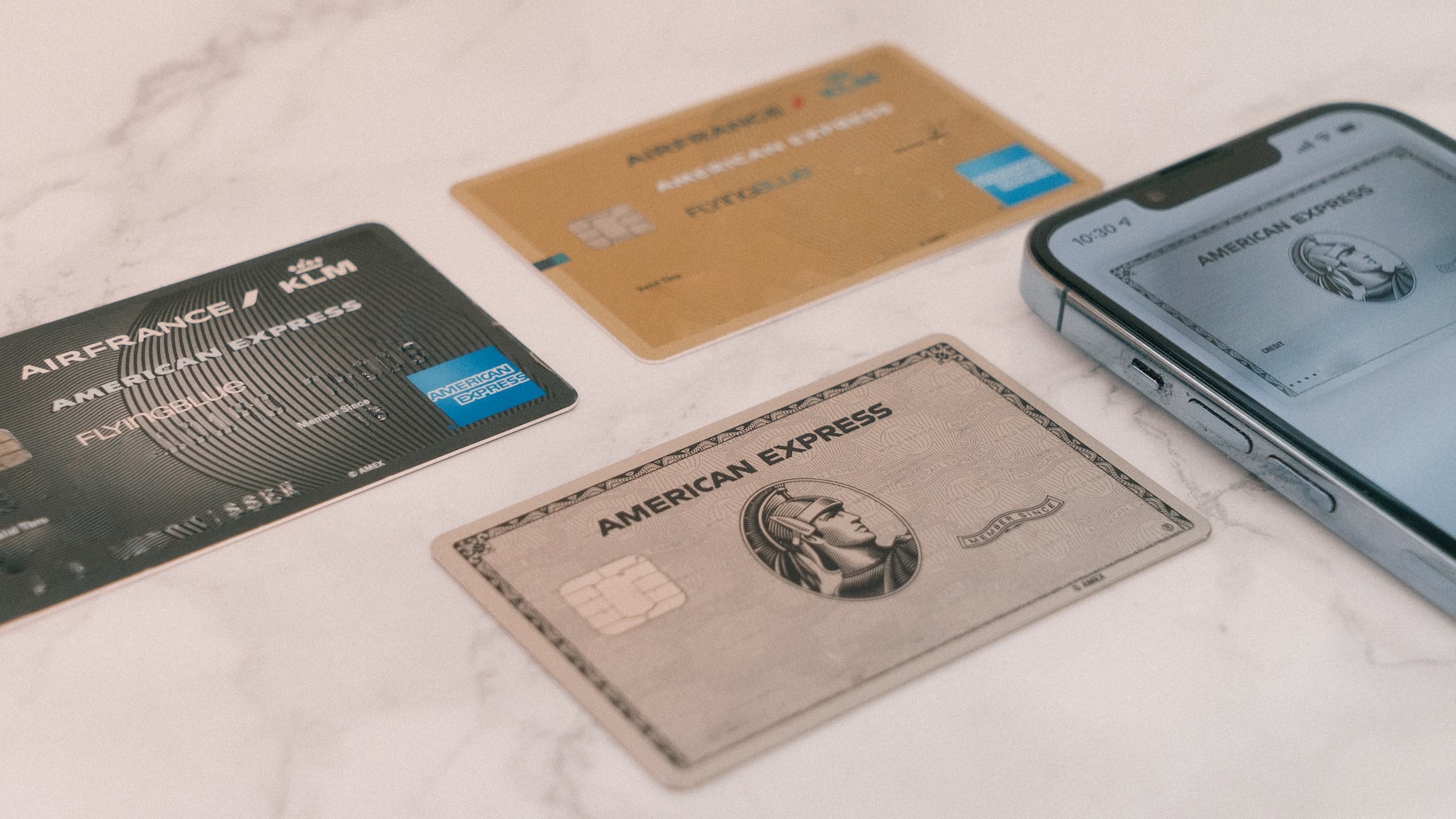Can You Get a Personal Loan for Pregnancy-Related Expenses?

The journey of pregnancy is filled with joy and challenges. However, pregnancy-related costs amount to tens of thousands of dollars, creating a financial burden for many prospective parents. It can be challenging to afford all the medical necessities for the mother and baby with your personal savings.
Taking out a personal loan can help you with most family planning and pregnancy expenses, allowing you to go through childbirth without worrying about unaffordable upfront costs. In this guide, we will go over the benefits and drawbacks of using different financing methods for pregnancy-related costs.
The comprehensive costs of pregnancy
Having a child is undoubtedly expensive. You will encounter new types of bills that might be unfamiliar to you, making it more challenging to budget for your expenditures each month. While the typical pregnancy lasts around 40 weeks, there are also post-natal check-ups and costs that will arise.
With so much change to be expected, staying prepared can help reduce the emotional and financial strain on expectant parents. Here are some of the standard costs of pregnancy.
Medical expenses
From prenatal check-ups to delivery charges, medical bills can rack up significantly as one of the most expensive parts of pregnancy. Medical expenses can include:
- Prenatal check-ups: It’s important to regularly visit an obstetrician for prenatal care to ensure the health of the mother and baby.
- Ultrasounds: While health insurance may cover a significant portion of fetal ultrasounds, it’s still good to know that each ultrasound can cost several hundred dollars.
- Delivery: The total cost of giving birth averages around $18,000, with the bills for vaginal and cesarean deliveries in a hospital amounting to around $3,000.
- Postnatal care: After delivering the baby, there is still important health care needed for the mother and baby. Follow-up appointments can help provide assistance for any postnatal complications.
Preparing for the baby
Buying necessities and preparing for the baby can be expensive. Here are the expected expenses related to getting ready to welcome your baby into your home.
- Nursery setup
- Clothes of various sizes
- Diapers
- Baby toiletries
- Baby equipment
- Baby sustenance
The frequency and quality of products and services for the baby and mother can also greatly affect how much you will need to pay.
Potential lost wages
Expectant parents often leave their jobs in order to recover from childbirth and take care of their newborns. If there is no full or partial paid maternity or paternity leave, you need to take into account lost income. Check with your state and employer to see whether you will receive paid family leave.

Why some families face financial strain during pregnancy
Insufficient insurance coverage
Health insurance may not cover all your bills, especially if your healthcare professional does not classify a procedure as medically necessary. Before performing prenatal or postnatal check-ups, it’s advisable to carefully review your health insurance to see what costs are covered and what types of claims are exempt from insurance coverage.
High deductibles
Before insurance can kick in for covered claims, you need to first meet the deductible. The exact deductible depends on what health insurance policy you have. A plan with a lower premium usually has a higher deductible, which means you need to pay more out-of-pocket before insurance can cover the rest.
Unanticipated medical and financial situations
During pregnancy, it is highly possible that people encounter unexpected medical situations that result in unforeseen expenses. Beware the additional costs of high-risk pregnancies. Medical tests, procedures, and hospital stays can easily result in rapidly rising debt if you don’t have the funds for them.
Limited paid parental leave
If your job doesn’t provide full paid family leave (PFL) and other benefits, you can expect to lose income over the course of the pregnancy. Limited paid parental leave is a common source of financial strain for parents embarking on the pregnancy journey.
Costs of preparing for a baby
Family planning can be an enjoyable and exciting experience. Prospective parents get to decorate the nursery with various baby toys and choose fitting clothes. You will need to shop for strollers, diapers, suitable food, and other baby necessities to ensure a safe and happy life for your newborn.

Exploring personal loans as a financing option
If you’re worried about not meeting the costs associated with a pregnancy, you might want to consider taking out a personal loan. A personal loan grants you loan funds that you can use with great freedom and flexibility so that you can better manage your bills during the pregnancy process.
Here are the main reasons to use a personal loan to finance pregnancy expenses.
No need for collateral
Most personal loans are unsecured, which means that you will not need to offer any assets as collateral. This is especially advantageous if you’re planning to welcome a baby to your family. Collateral assets can be repossessed by the lender if you default on a personal loan. There is no need to risk any property or vehicles as collateral if you can obtain an unsecured personal loan with suitable terms.
Fixed terms and simple repayment schedules
Personal loans can provide your family with a clear and structured repayment schedule so that there is less confusion surrounding paying back the loan. The most common schedule involves making fixed installments every month until the personal loan is completely repaid.
Immediate funding
If you’re facing unexpected expenses during pregnancy, prompt funding may be necessary in order to maintain the safety of the mother and baby. After loan approval, the loan funds can be quickly disbursed into your bank account, allowing for near-immediate usage of the money.
Flexible usage
Unlike specific loans, personal loans come with incredible flexibility in usage. You can use the money to cover various pregnancy-related expenses as well as other financial needs. Whether you need to consolidate existing debt or pay for groceries, personal loans can provide you with those funds.
What do lenders consider when making loan decisions?
When granting personal loans, lenders take into account numerous factors. Here are the key criteria that most lenders consider when reviewing loan applications.
- Income
- Credit score
- Existing debt
- Credit utilization ratio
- Record of any missed payments, loan defaults, or bankruptcy
- Loan purpose

Advantages of using personal loans for pregnancy expenses
Here are the main advantages of obtaining a personal loan for family planning and pregnancy costs.
You can keep your savings intact
Whether you have an individual or family savings account, you might want to keep your savings intact by using other funds for pregnancy bills instead. Maintaining a healthy savings account can benefit families by ensuring you have funds in case of an emergency. A personal loan could also allow families to plan for a baby without as much financial strain.
Consolidate all debt into one fixed monthly payment
Personal loans enable borrowers to roll all of their pregnancy-related bills into one single, fixed monthly payment. That way, you can avoid high upfront costs that you would otherwise be unable to afford. The convenience of only needing to make one monthly installment for various pregnancy expenses can simplify your budgeting and financial planning.
Select products and services for your baby without compromising on quality
One problem many prospective parents face is that they fear budget constraints hurting their baby. For example, financial strain may mean you will need to compromise on the quality or type of baby-related products.
A personal loan can be a valuable financing strategy that enables parents to afford their preferred medical services and baby products. That way, you won’t need to compromise on the quality and can broaden your available options.
Points to consider before opting for a personal loan
Before choosing a personal loan, it’s a good idea to ponder the pros and cons of using a loan for pregnancy-related expenses. By reviewing your options and loan terms, you can increase your chances of a successful financial outcome.
Cost of obtaining the loan
The total cost of the loan includes various fees and charges. The interest over time also directly affects the cost of borrowing. Before securing a loan, it’s crucial that you evaluate the total cost of the loan over the loan term, including interest and fees.
Budget to avoid overborrowing
It’s a good idea to set a clear budget for all of your pregnancy-related expenses so that you can avoid over-borrowing. Borrowing only what you expect you need can help you reduce the amount of debt you will need to repay.
Since pregnancies may involve unexpected medical expenses, it may be beneficial to consider how much extra you might want to borrow in order to manage any unforeseen bills. While taking out a second personal loan is a viable option, it may not be optimal since you would need to go through the loan application process again.
Compare interest rates
By comparing the different interest rates and loan terms from various competitive lenders, you can increase your chances of securing a favorable loan with a lower cost of borrowing.
The average interest rate of a personal loan is around 11 percent, with most loans falling between 6 and 36 percent. The more creditworthy you are, the more likely you can be approved for a low interest personal loan, which typically has a lower borrowing cost.
Changes in financial standing
Since the loan will be for pregnancy-related costs, it’s a good idea to factor in any future financial changes such as a parent taking an extended leave or childcare costs. These changes can affect your income, expenditures, and budget. In general, borrowers can expect their repayment capacity to be reduced following childbirth.
Alternative financial avenues for pregnancy-related costs
Health savings account and flexible spending account
A health savings account (HSA) could help you with paying bills. If your employer offers an HSA, you can leverage the tax-advantaged HSA account for a variety of your pregnancy-related medical bills.
A flexible spending account (FSA) is another financing option. You can use your FSA money to purchase useful family planning and pregnancy-related products.
Maternity grants and community support programs
You might be able to qualify for assistance through maternity grants and community support programs. Many programs and local health departments exist to aid expectant families. Food banks, shelters, and other community-based organizations often offer assistance to pregnant women who are struggling to make ends meet.
Government assistance programs
The WIC (Special Supplemental Nutrition Program for Women, Infants, and Children) is a federal assistance program for pregnant women, mothers, and children. It helps provide food to struggling families so that babies can meet their nutritional needs.
Hospital payment plans
Some hospitals offer direct financial assistance or payment plans to those in need. You can check with your local hospitals to see what payment plans are available prior to delivering the baby.
Personal fundraising campaigns
While crowdfunding is not as popular for pregnancy, you could still try for a personal fundraising campaign if you’re facing challenging medical scenarios. Families with special circumstances and needs may benefit from spreading their stories online, potentially receiving community support in the form of monetary donations.

Key takeaways
It’s important to be prepared for both financial and emotional changes as you begin the journey of parenthood. Consider all the available options you have to finance pregnancy expenses so that the mother and baby can receive the best affordable care and helpful resources.
The main benefits of using a personal loan for pregnancy-related expenses include:
- Easier family planning
- Increased ability to afford medical check-ups
- Reduced financial strain
- Higher quality products and services
- Fast funding
- Preserved personal savings
- Bridge the gap in health insurance
Resources and further reading
If you need money for family planning or pregnancy-related expenses, it’s important to find a reputable lender. Here are a few example loan providers to get you started with finding a suitable lender.
- Credible
- SoFi
- Discover
- Upstart
- LightStream
- Upgrade
Along with picking a reputable lender for pregnancy expenses, it’s also a good idea to research how to budget for a new baby so that you can be ready for post-pregnancy financial management.
Edited by:
Bryan Huynh
•
Product Tester & Writer




































































































